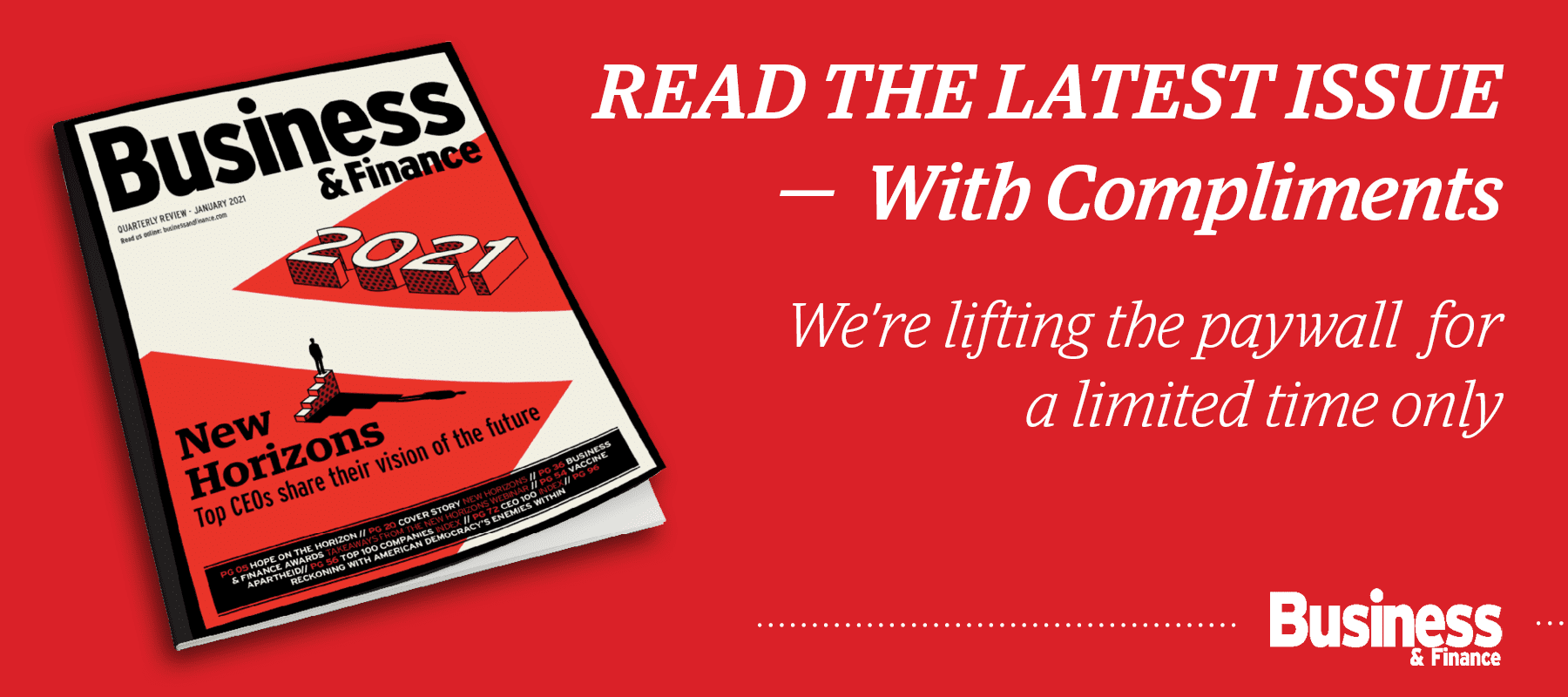The latest digital edition of Business & Finance was launched today, Thursday, January 28th, by the Business & Finance Media Group.
The latest digital edition of Business & Finance was launched today, Thursday, January 28th, by the Business & Finance Media Group. Managing Editor, Sarah Freeman, writes: “In this issue, we celebrate the hope and potential of new horizons. As we go to publication, the country is in the throes of a third lockdown and many businesses have been shuttered for weeks, others for months. However, across the country, the COVID-19 vaccine is being administered to the most vulnerable of our population, bringing with it an optimism that a return to ‘business as usual’ is in the offing.
“The COVID-19 pandemic, which began in early 2020, brought extraordinary challenges, and although the country successfully adapted to a workforce and workplace evolution, it took enormous effort, innovation, determination and diligence.
“We learned much from the harsh lessons of last year and now, as we embrace 2021, we bring those insights with us to ensure our world is a better place with a greater emphasis on quality and longevity, rather than quantity and built-in obsolescence.”
Cover story – ‘New Horizons’

How do Ireland’s business leaders see their industries changing in response to shifting consumer needs? What pressures have work from home models created for employers, or do such models present unique new opportunities? Read more in our cover story, ‘New Horizons.’
The past year has brought innumerable challenges, with an economy rocked by the titanic effects of the COVID-19 pandemic. With 2020 behind them, Ireland’s leading CEOs are now looking at what the future will entail for their companies, and for Irish business. Once the dust has settled, what lessons are learned? How do Ireland’s business leaders see their industries changing in response to shifting consumer needs? What pressures have work from home models created for employers, or do such models present unique new opportunities?
In the latest issue, Volume 58, No. 1, we have reached out to key figures, who share their visions for the next year in conversation with David Monaghan, Junior Editor of Business & Finance. Among those who have contributed are John Jordan, CEO of Ornua, Danny McCoy, CEO of Ibec, Dee Forbes, Director General of RTÉ, Seamus Hand, Managing Partner at KPMG Ireland, Maura Quinn, CEO of the Institute of Directors (IoD) in Ireland, and more.
Guest contributors
In a special feature, Sean Davis, Regional Director North America, Enterprise Ireland, discusses how Enterprise Ireland-supported companies have responded to the pandemic with innovative solutions.
Melvyn Krauss, a senior fellow at Stanford University’s Hoover Institution, discusses what he calls ‘Europe’s Faustian Bargain’: Lost behind the news of the European Union’s budget and recovery fund is a long-awaited improvement in the eurozone’s internal balance, he says. The convergence between north and south is such an important development that it will take precedence over guaranteeing member states’ adherence to the rule of law.

‘Vaccine Apartheid’: A feature by Jayati Ghosh, Executive Secretary of International Development Economics Associates and a member of the Independent Commission for the Reform of International Corporate Taxation, in Vol. 58, No 1 of Business & Finance magazine.
Jayati Ghosh, Executive Secretary of International Development Economics Associates and a member of the Independent Commission for the Reform of International Corporate Taxation, writes a feature on ‘Vaccine Apartheid’: Because a pandemic can be overcome only when it is overcome everywhere, she says, embracing an every-country-for-itself approach would seem irrational. And yet, as the unseemly competition for vaccine doses indicates, that is exactly what many countries have done.
Anatole Kaletsky, Chief Economist and Co-Chairman of Gavekal Dragonomics and the author of Capitalism 4.0: The Birth of a New Economy in the Aftermath of Crisis, describes why Biden can overcome political deadlock. According to conventional wisdom, US President Biden will find himself immediately paralyzed because Republicans will follow the same obstructionist playbook they used to sabotage Barack Obama’s administration. But there are five new features of US political dynamics that this argument has overlooked.
All of this and more in our latest digital issue.
The paywall is lifted for a limited time only. You can read the latest issue here, with compliments.




